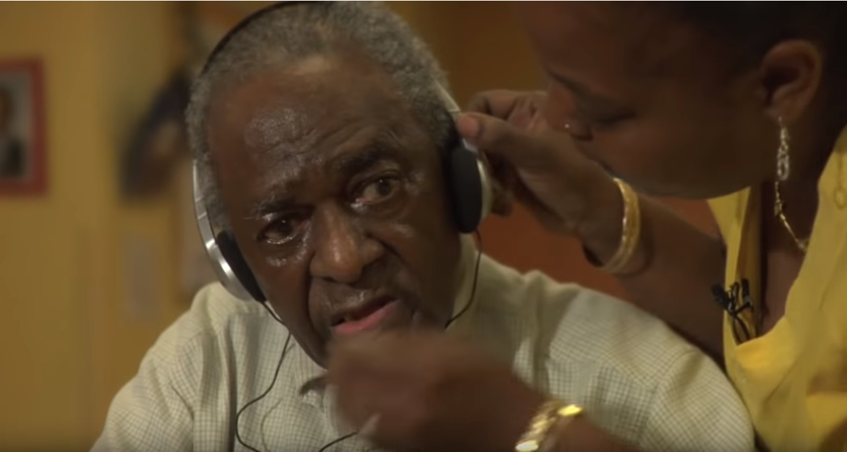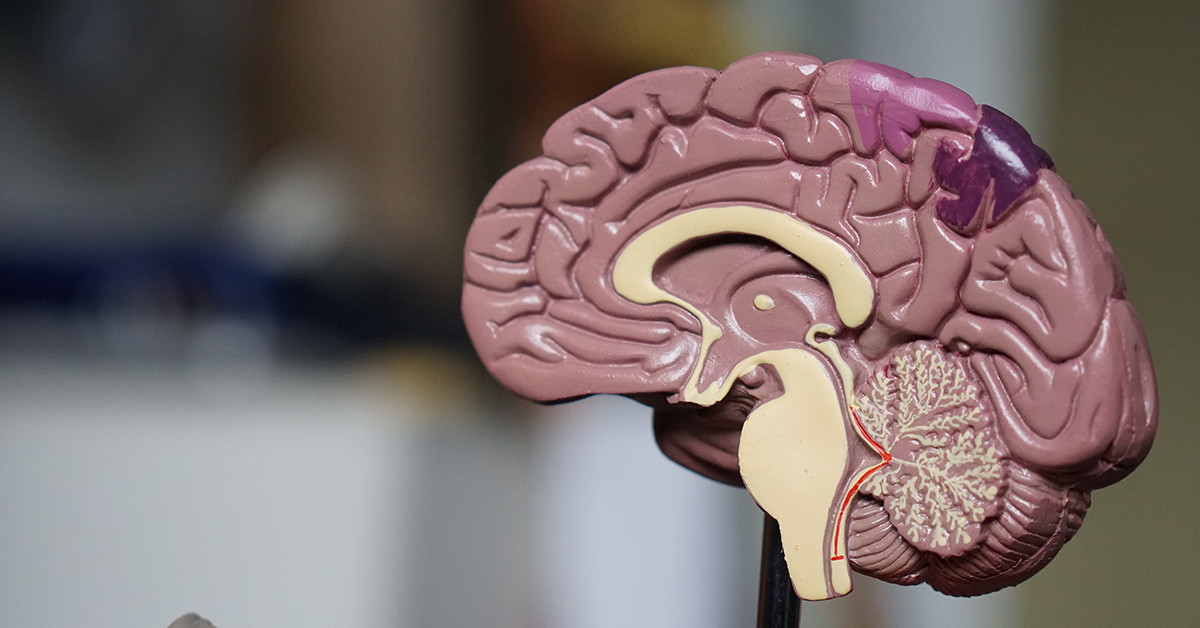Music on the mind
An elderly frail person sits hunched in his wheelchair, in the plain and clinical setting of a residential care home. His clothes sit baggy over a bony frame. This person’s name is Henry, and he lives with Alzheimer’s disease. A carer provides him an iPod and headphones. Still looking downwards, he mumbles to her. But then—as he listens to the music—Henry becomes animated. His face is suddenly full of movement and expression, he moves and sways and hums—clearly in response to the music. He sings out loud.
You may have seen this video of Henry, which went viral in 2011, as the world saw the impact of music on one person living with this difficult cognitive condition.

Henry’s powerful response to music was documented in the video ‘Man In Nursing Home Reacts To Hearing Music From His Era’
Image adapted from: Music and Memory via YouTubeAlzheimer’s disease currently has no cure. But particular therapies, such as music therapy, can greatly improve the lives of those who suffer from this progressive and debilitating disease. The simple action of listening to familiar music has repeatedly improved the quality of life, attention, verbal recognition, positive emotions and engagement of people living with Alzheimer’s disease. In some cases, it has reduced anxiety and the need for some antipsychotic medications. The profound positive impact of music is often surprising, particularly when the person is in later stages of the disease.
So, what is actually happening in the brain to create such a rapid and marked difference in a person and the way they interact with the world?
How does Alzheimer’s disease affect the brain?
Alzheimer’s disease is the most common type of dementia, affecting millions of people worldwide, including around 450,000 Australians. It is characterised by progressive degeneration of brain cells, resulting in memory loss and altering thinking skills, emotions, behaviour and mood. Daily tasks become increasingly difficult to carry out and symptoms worsen over time.
When a person has Alzheimer’s disease, one theory is that abnormal proteins form ‘plaques’ in and around the affected brain cells, disrupting brain function and causing the brain cells to eventually die. These changes in the brain begin to occur up to 15 years before symptoms are detected. Gradually, short-term memories will be affected, then as the disease progresses it can impact on long-term memory, language, judgement, attention and other behavioural aspects. While these plaques are known to be present in the brains of people with Alzheimer’s disease, the underlying cause is not certain.

How does music affect people with Alzheimer’s disease?
Those with diagnosed dementia can often still recognise music, even when other parts of their memory, such as remembering how to speak, have lapsed. This may be due to where in the brain the cell degradation has occurred—it tends not to occur in the section of the brain which is active when listening to familiar music. Living with dementia has been described as ‘living from a place of emotion’, so connecting with the arts is often a meaningful activity that can be experienced in the moment; it is not reliant on the skills or cognitive areas most affected by Alzheimer’s disease.
MRI images of brain activity of people diagnosed with Alzheimer’s disease provide evidence for the areas of the brain that are most affected—and how brains can change. Maps of brain activity made before and after completing a music therapy program have shown interesting changes in various parts of the brain of those tested. Function and connectivity in sensory regions of the brain that typically reduce in those with Alzheimer’s disease have been shown to increase in many of the patients tested after the music program. This helps to explain observations and studies involving people like Henry who demonstrate positive actions such as mood improvements and enhanced brain function after repeated listening to music familiar to them.

While it is isn’t guaranteed to always work as a therapy measure—and it certainly won’t cure Alzheimer’s disease—music can offer tangible benefits, relief and moments of joy and clarity for those suffering from this disease. It subsequently offers some relief for their loved ones too. At its least effective, listening to music is an enjoyable pastime; at its most effective it can positively change the way people with debilitating illnesses interact with the world.






